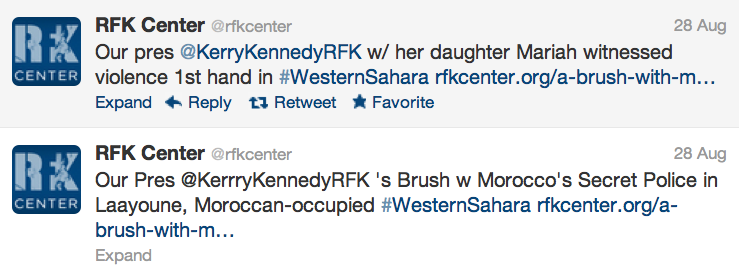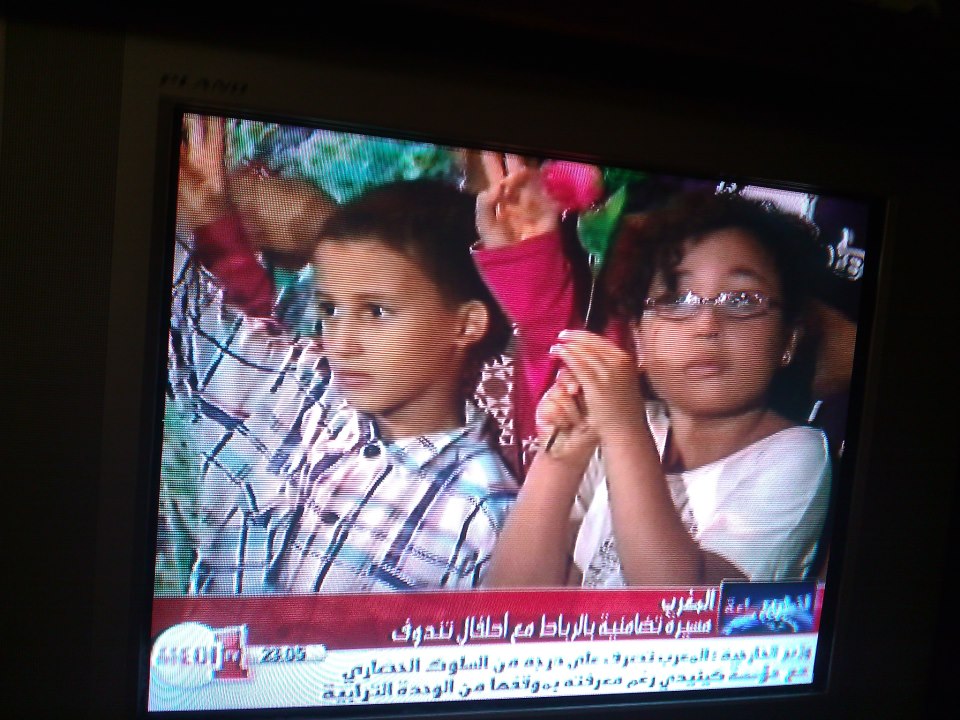On the first day of the Robert F. Kennedy Center for Justice and Human Rights’ visit to the Western Sahara “to assess the human-rights situation in both Western Sahara and the Algerian refugee camps where displaced Sahrawi live,” Kerry Kennedy, the president of the center, gave an account for the Huffington Post. Her piece details a crude encounter with the DST (Moroccan intelligence services) after her delegation witnessed DST officers brutalizing a peacefully protesting Sahrawi woman. Plain-clothed officers beat her to the ground, as shown in the accompanying images. When the officers noticed their actions were being caught on camera, other officers rushed to block the view and prevent any further documentation.
The center has also been updating its Twitter account with status updates and images from its trip.

[Screenshot of the Robert F. Kennedy Center`s Twitter account.]
Meanwhile, Moroccan television channel, MEDI1 TV, provided coverage of what they described to be a “spontaneous protest held by children” in solidarity with Moroccan soldiers held in the Algeria-based Tindouf camp.

[Image taken of MEDI1 TV coverage of "spontaneous protest held by children." Image from Facebook.]
The center`s visit also occurs at time when the Moroccan government and the United Nations have been at odds over the UN envoy sent to mediate the ongoing conflict. In a widely publicized phone call, it was revelaed that Ban Ki-Moon rejected Mohammed VI`s call to replace Christopher Ross, the UN envoy, on the grounds that he was "unbalanced and biased," in favor of the Sahrawi position. In the Moroccan state media`s version of the story, the headline read: Ban Ki-Moon Welcomes Leadership Of HM King Regarding Lofty International Ideals. The state media glossed over Ban Ki-Moon`s blunt rejection of the Moroccan government`s attempt to steer the direction of the conflict`s resolution in its favor.
The Western Saharan conflict remains one of the world`s longest running post-colonial territorial disputes. The 1991 ceasefire between the Moroccan government and the Polisario independence movement, which was to be followed by a referendum, has yet to be carried out.